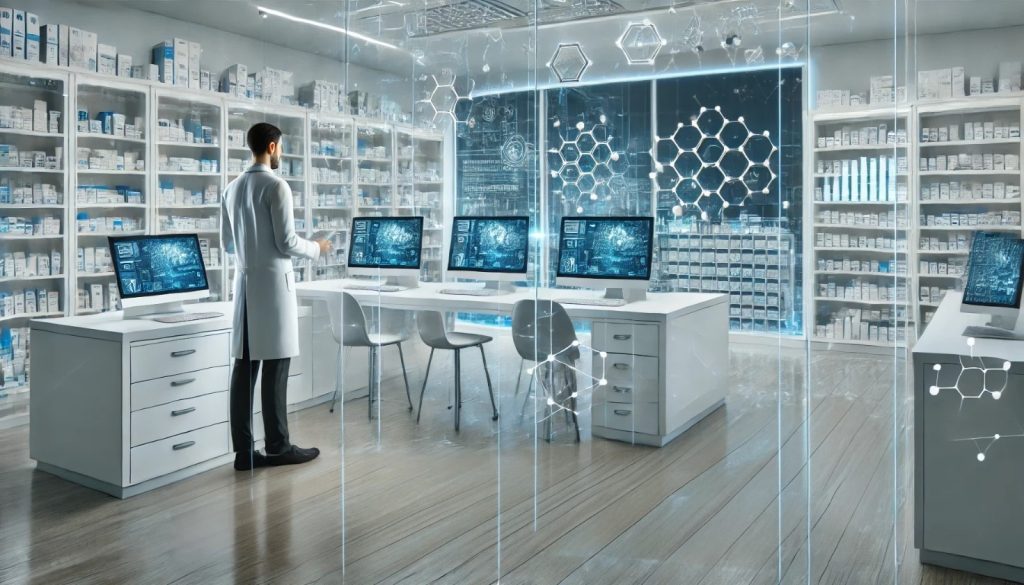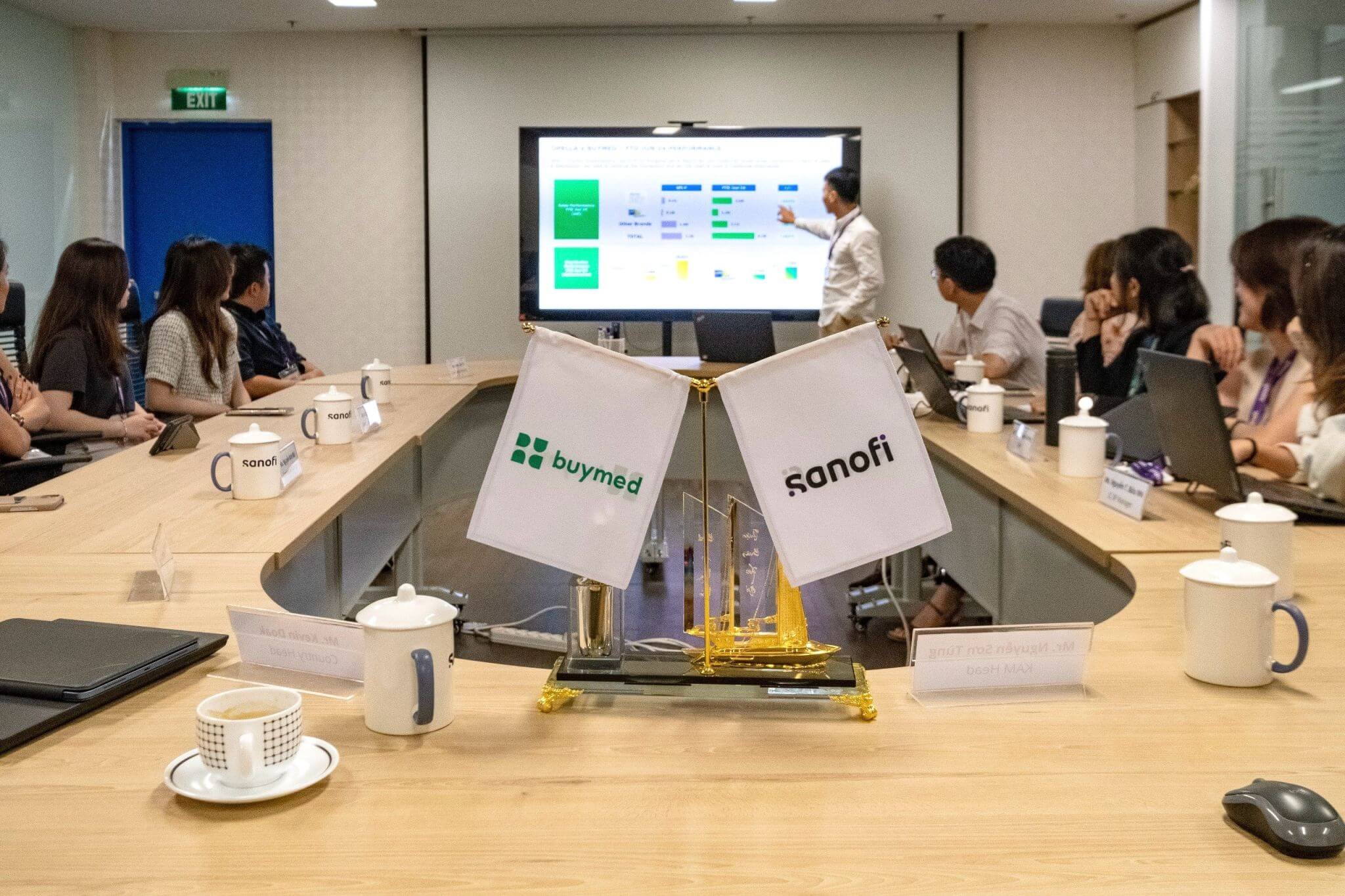AI-Driven Drug Discovery and Pharmacy Operations: Is the Future Really Here?
AI is transforming healthcare worldwide, accelerating drug discovery and automating pharmacy operations. While countries with strong digital infrastructure are making rapid advancements, regions with developing healthcare systems face hurdles such as data scarcity, regulatory uncertainty, and limited technological adoption. The question is: Will AI democratize healthcare and improve access, or will it create new barriers […]
AI is transforming healthcare worldwide, accelerating drug discovery and automating pharmacy operations. While countries with strong digital infrastructure are making rapid advancements, regions with developing healthcare systems face hurdles such as data scarcity, regulatory uncertainty, and limited technological adoption.
The question is: Will AI democratize healthcare and improve access, or will it create new barriers that disproportionately benefit advanced economies?
AI in Drug Discovery: Can Southeast Asia Keep Up?
A Growing Industry with Limited Innovation
Southeast Asia’s pharmaceutical industry is growing fast, valued at $30 billion in 2022 with an 8-10% annual growth rate. However, the region’s contribution to global drug discovery remains limited, with most countries focusing on generic drug production rather than innovation.
Singapore leads in biomedical research, investing over $500 million annually and filing more than 1,000 pharmaceutical patents per year.
Malaysia and Thailand are leveraging their natural resources for drug research, while Vietnam lags in novel drug development, with fewer than 50 pharmaceutical patents filed annually and R&D efforts centered on traditional medicine.
Globally, AI is reshaping drug discovery by reducing costs, shortening development timelines, and increasing precision.
Traditional drug discovery takes 10-15 years and billions of dollars, with most compounds failing before clinical trials. AI accelerates this process through predictive analytics and machine learning.
AI’s Role in Drug Discovery: From Target Identification to Clinical Trials
AI is particularly powerful in target identification, where it analyzes biological data to pinpoint disease-related proteins or genes.
Companies like Insilico Medicine are already using AI to identify novel drug targets for conditions such as cancer and fibrosis.
In drug design, AI-driven virtual screening allows researchers to evaluate millions of potential compounds in days rather than years, significantly improving efficiency.
Platforms like Atomwise and Schrödinger use deep learning to predict molecular interactions, optimizing drug candidates faster than traditional laboratory screening.
AI is also transforming clinical trials, one of the most expensive and time-consuming phases of drug development.
AI-powered platforms like Deep 6 AI streamline patient recruitment by analyzing medical records to match suitable candidates, cutting trial durations and improving success rates.
Additionally, drug repurposing is gaining traction, with AI identifying new uses for existing drugs – such as BenevolentAI’s discovery of baricitinib as a potential COVID-19 treatment.

Can AI Unlock Southeast Asia’s Potential in Drug Discovery?
Southeast Asia’s biodiversity and deep-rooted traditional medicine present immense opportunities for AI-assisted natural product discovery, enabling researchers to identify bioactive compounds more efficiently.
However, limited access to high-quality health data poses a challenge. AI models primarily trained on Western datasets may not fully account for the genetic diversity and disease patterns in Southeast Asia, raising concerns about applicability.
Furthermore, AI adoption across the region remains uneven – while Singapore is advancing rapidly, other nations are only beginning to explore AI’s potential.
This raises a critical question: Can AI-driven drug discovery bridge the innovation gap in Southeast Asia, or will it further concentrate progress in already tech-savvy nations?
AI-Operated Pharmacies: Probably The Next Frontier in Healthcare
The Rise of Fully Automated Online Pharmacies
AI’s impact extends beyond drug development, reshaping pharmacy operations by enabling fully automated online pharmacies.
AI is now capable of handling every aspect of the pharmacy workflow – from prescription verification to dispensing and delivery – eliminating inefficiencies and reducing costs.
This transformation is already underway. Companies like PillPack (acquired by Amazon) and AI Pharma in Japan have automated medication sorting, packaging, and subscription management, cutting operational costs by 30%.
AI-powered chatbots such as Safedrugbot provide instant medication guidance, offering patients dosage instructions and interaction warnings without human pharmacists.
How AI is Transforming Pharmacy Operations
AI-driven pharmacies function through a complex system of interconnected technologies.
AI-powered virtual assistants provide 24/7 consultations, using natural language processing (NLP) to assess symptoms and recommend treatments.
These systems can cross-reference prescriptions with medical records and drug databases to flag potential risks before dispensing.
Robotic dispensing systems, like ScriptPro, achieve near-perfect accuracy in filling prescriptions, significantly reducing human error and wait times.
AI also optimizes inventory management, predicting medication demand based on historical sales trends, seasonal disease patterns, and localized health data.
Large-scale retailers like Walmart have already reduced stockouts and overstock by 15-20% using AI-driven inventory systems.
Meanwhile, AI-powered logistics ensure fast and efficient medication delivery, with some companies deploying AI-powered drones for last-mile distribution.
Zipline, for instance, has revolutionized medical deliveries in remote regions, cutting transport times from hours to minutes.
Efficiency vs. Risk: Can AI-Driven Pharmacies Replace Human Pharmacists?
The advantages of AI – operated pharmacies are clear: they enhance efficiency, minimize human error, and improve medication access.
However, several challenges remain. AI excels at routine prescriptions but struggles with complex cases, such as interpreting handwritten prescriptions, managing non-standard dosages, or handling multi-drug interactions.
Another critical issue is data reliability. Many pharmacies, particularly in Southeast Asia, still rely on paper-based systems, limiting AI’s effectiveness. Without high-quality digital medical records, can AI-driven pharmacies function safely and accurately?
Beyond technical concerns, ethical and regulatory issues arise. If an AI system makes an error in dispensing medication, who is accountable?
In 2021, the U.S. FDA introduced guidelines requiring human oversight in AI-driven medical devices, but regulations vary across countries.
Should AI pharmacies be governed by the same rules as traditional ones, or do they require a new legal framework?
Perhaps the most fundamental issue is patient trust. While AI chatbots provide quick and data-driven responses, they lack the empathy and human intuition crucial for patient care.
This is particularly important for chronic disease management and mental health conditions, where human interaction plays a key role in treatment adherence and patient confidence.
For Better or For Worse
AI is no longer a futuristic vision – it’s actively shaping how we develop medicines and deliver healthcare.
It’s faster, more efficient, and capable of analyzing data on a scale no human ever could.
It has the potential to rewrite the rules of medicine, but it must be more than a tool for the few—it has to be a revolution for all.
The question isn’t whether AI will take over, but whether we are ready to make the right choices in how we use it.


 vi
vi






